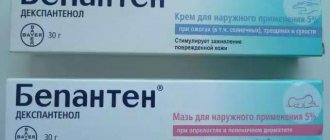General provisions
Melanoma immunotherapy is one of the most promising treatment methods. A malignant tumor suppresses the natural defense mechanisms in the patient’s body, which is why it has a high degree of aggression. And the treatment method under consideration is precisely aimed at overcoming immunosuppression - biological drugs are prescribed that stimulate the recognition of atypical cells and the fight against them.
Immunotherapy is most often used in addition to other treatments, which is why it is called adjuvant. Therapeutic tactics are determined by the doctor, based on the stage of the disease and the individual characteristics of the body. The first step will be surgical removal of the malignant lesion by wide excision. The presence of atypical cells in the lymph nodes requires their removal followed by irradiation of the postoperative area. Next, chemotherapy with antitumor drugs is carried out.
Biological drugs are included in all melanoma treatment regimens; they are indicated at any stage of the disease. These include:
- Alpha interferon.
- Interleukin-2.
- Monoclonal antibodies.
- Specific inhibitors.
- Effector cells.
- Vaccines.
Immunotherapy for melanoma is mainly aimed at reducing the risk of metastasis and tumor recurrence. Each of the presented methods has its own characteristics, so they are used differently. The choice of one or another drug is made by the doctor.
By strengthening the mechanisms of antitumor immunity, it is possible to reduce the likelihood of melanoma progression.
How is immunotherapy performed for melanoma?
Immunotherapy for melanoma begins to be used no earlier than the 2nd stage of the disease, usually after surgery, when the immune system begins to need support.
Treatment with immunomodulatory drugs is carried out only in a hospital setting:
- The active method is used at the initial stage of the disease to strengthen the body; the result is achieved gradually by strengthening the work of the protective cells of the immune system.
- Passive involves the administration of drugs with antibodies that spread throughout the body and destroy cancer cells.
There is no specific immunotherapy regimen for melanoma. For each patient, the oncologist develops an individual treatment plan. Immunomodulatory drugs are administered intravenously over several weeks at intervals of several days. In the final stages of melanoma development, which cannot be treated surgically, the dose of medication is significantly increased. This achieves the maximum effect of immunotherapy and increases the patient’s life expectancy.
Alpha interferon
Interferon is a specific protein synthesized by lymphocytes. In tumor diseases it acts at different levels:
- Stimulates antigen presentation and activates T-killer cells.
- Modulates the synthesis of oncogenes and inhibits tumor growth.
- Changes the metabolism of atypical cells and prevents their proliferation.
Recombinant interferons (alpha 2a and 2b), as well as their pegylated derivatives, are used in melanoma treatment regimens. The latter were created in the form of a complex with polyethylene glycol, which made it possible to obtain a longer duration of action, better therapeutic efficacy, and increase tolerability and ease of use of the drug.
Treatment with interferons begins in the hospital but continues on an outpatient basis. Treatment regimens and protocols are determined individually, but they all consist of two stages:
- Induction (intravenous infusions after tumor removal).
- Supportive (subcutaneous administration).
Depending on the specific tactics, the course of treatment is designed for 1, 2 or 3 years. The patient is warned that side effects may occur during the specified time. Of these, the most common are the following:
- Increase in temperature (pyrogenic effect).
- Pain syndrome (in muscles and joints, abdomen, cardiac region).
- General weakness.
- Sensory disorders.
Sometimes there are hematological changes (leukemia and thrombocytopenia); rare disorders include drug-induced hepatitis and renal dysfunction. Contraindications to interferon therapy include:
- Autoimmune diseases.
- Cirrhosis of the liver.
- Severe cardiovascular pathology.
- Kidney failure.
- Neuropsychiatric disorders.
Based on clinical studies and experience with the use of interferon in the treatment of melanoma, it can be concluded that the drug increases patient survival and reduces the risk of relapses.
Interferon has been used for melanoma for a long time and has already proven its benefit in the standard treatment of the disease.
Drugs
Drugs for this type of therapy are being developed and improved every day. And if not so long ago only interferons were used for treatment, today more effective drugs are used with a minimum of side effects and high efficiency.
The most common of them include:
- Keytruda (Pembrolizumab). It is a drug containing monoclonal antibodies that can quickly block the PD-1 protein, which protects the cancer cell from the effects of lymphocytes.
This drug is used for melanoma at the stage of active metastasis and its inoperable form, as well as in the absence of effect from other drugs. Keytruda is used at a dosage of 2 mg/kg, once every 3 weeks.
- Opdivo (Nivolumab). According to its principle of action, this drug is considered similar to the previous drug. In the same way, it blocks the PD-1 protein and activates its own protective cells.
Opdivo is prescribed for aggressive tumor growth in the final stages with a significant mutation of the BRAF gene. The drug is prescribed once every 3 weeks. The dosage is calculated for each patient individually.
- Yervoy (ipilimumab). The drug activates the work of lymphocytes by acting on their CTLA-4 receptors. It is actively used in the treatment of both initial and advanced stages of the disease and at the same time shows effectiveness in 80% of cases.
The product has a slow but long-lasting effect. Yervoy is administered only as an infusion once a month. The full course includes up to 4 infusions.
- Zelboraf (Vemurafenib) – BRAF inhibitor, which is used to treat advanced melanomas. BRAF is a gene that, when mutated, causes the formation of cancer cells. Zelboraf blocks the functioning of this gene.
Treatment with the drug is indicated only for mutations of this gene. In the absence of mutation, the drug can cause active tumor growth. The drug is prescribed in tablet form and begins to act immediately after administration. It is recommended to take at least 4 tablets per day.
Interleukin-2
Along with interferon, there is another cytokine used in the treatment of malignant tumors - interleukin-2 (IL-2). Its therapeutic effectiveness is due to the following properties:
- Enhances the activity of T-killers and B-lymphocytes.
- Increases the production of immunoglobulins.
- Stimulates phagocytosis.
- Inhibits the differentiation and proliferation of tumor cells.
- Suppresses the expression of growth factors.
The best effectiveness is obtained by combining interleukin with interferon and chemotherapy (dacarbazine). A similar combination for metastatic melanoma gives a positive response in 60% of cases. IL-2 monotherapy also exists, but its effectiveness is much lower.
Monoclonal antibodies
A very promising method for treating melanoma is the use of monoclonal antibodies - substances that bind to specific receptors on the surface of the cancer cell. This, in turn, leads to the recognition of the tumor by the immune system and starts the process of its destruction. There is another scenario when the antibodies themselves induce changes leading to inhibition of growth and death of the malignant cell.
Monoclonal antibodies to various tumor antigens are currently being synthesized. Among the clinical trials that have already passed, the following can be noted:
- Ipilimumab.
- Nivolumab.
- Pembrolizumab.
- Atezolizumab.
These drugs are also called targeted because they act specifically on the tumor cell, no matter where it is located. Such therapy extends life expectancy in inoperable forms of the disease and inhibits melanoma metastasis. But each patient’s reaction to the drug may be different, which requires taking into account contraindications and side effects. They are very similar to those already described above.
Monoclonal antibodies help the immune system recognize tumor cells and destroy them.
Advantages
Despite the fact that this type of treatment appeared not so long ago, immunotherapy is actively used to stop cancer. To date, many cases of complete cure of pathology have been registered thanks to the use of immunotherapeutic drugs.
In addition, therapy has certain advantages:
- the ability to inhibit the growth of primary and secondary tumors;
- minimum side effects;
- prolongs the life span in advanced stages of the disease;
- increases the likelihood of recovery for inoperable tumors;
- allows you to cope with the disease without using aggressive and radical techniques.
Specific inhibitors
Targeted therapy for melanoma is also carried out with other biological products. These are specific inhibitors of certain protein molecules that ensure tumor growth and development. Such drugs include:
- Vemurafenib.
- Trametinib.
- Dabrafenib.
- Bevacizumab.
- Lenalidomide.
Taking these drugs allows you to reduce the size of the tumor and relieve cancer intoxication in inoperable and metastatic melanomas. They are indicated mainly in the later stages of the disease.
Pharmaceuticals for immunotherapy and mechanism of action
A whole line of drugs is used for immunotherapy of skin cancer. These are Cycloferon, Ipilimumab, Interleukin 2, Interferon-alpha and others. All of them act on the principle of influencing T-lymphocytes of the human body - killer cells of the immune system, increasing the body's reactivity to tumor cells. Some foreign clinics use modern methods of combining antibodies and radioactive substances. With this therapy, only tumor cells are irradiated and healthy tissue is not affected.
Ipilimumab works well in helping the body fight metastatic melanoma.
Ipilimumab
The most effective drug used to treat melanoma in the presence of metastases. It operates on the principle of forming the body’s immune response to malignant cells. The medicine is used when the activity of T-killer cells is so reduced that they are unable to cope with the progressive tumor process.
“Ipilimumab” is a monocellular antibody of a unique structure, artificially synthesized, the principle of action of which is based on the connection with the cytoscopic antigen CTLA-4 with the surfaces of T-lymphocytes and disruption of the mechanism by which they identify damaged cancer cells as elements foreign to the body. The drug does not provoke dangerous adverse reactions. Side effects may include rash, diarrhea, fatigue, endocrine disorders, and colitis. The course of therapy usually includes 4 sessions of drug administration. The drug is not prescribed to persons under 18 years of age.
Cytokine therapy
Cytoxins are protein compounds used to activate the immune system. In the treatment of melanoma, synthetic copies of natural cytokines are used - Interferon-alpha and Interleukin-2 (IL-2). In the first stages of therapy, medications are administered intravenously; later, subcutaneous administration of medications is possible. When treated with these drugs, a decrease in growing melanoma is observed in 10–20% of patients. At stage 4 of the disease, cytokines are administered in parallel with chemotherapy. IL-2 treatment is carried out exclusively in special medical institutions due to the high risk of developing dangerous side complications.
Interferon-alpha helps eliminate the consequences of skin cancer attacking other organs.
Interferon alpha
Often in the later stages of development, the tumor grows so much that it affects distant organs. With such processes, surgical removal of the tumor does not provide a complete 100% guarantee of removal of foreign tissues that remain in the body. In such situations, after surgery they resort to the use of Interferon-alpha. This therapy makes it possible to delay tumor relapses or completely prevent the growth and development of the tumor. In order to obtain the desired effect, the drug is administered in large doses, which causes a number of serious adverse reactions. In this regard, Interferon-alpha therapy is carried out under the close supervision of the attending physician.
BCG vaccine
The BCG vaccine is based on the development of immune protection against the bacterium Mycobacterium bovic. In addition, the BCG vaccine can activate the human immune system. In order to activate the body's protective properties, the BCG vaccine is used in the treatment of stage 3 melanoma. The introduction of the BCG vaccine into melanoma tumor cells promotes the systemic production of active immunity, significant infiltration of cancer cells by immune cells and persistent clinical regression.
Imiquimod cream
Imiquimod is a cream that is used externally to stimulate local immunity to cancer cells. Imiquimod is prescribed in the initial stages of melanoma located on sensitive areas of the face. However, not all experts approved the feasibility and effectiveness of using this cream. The drug is not prescribed in cases of progressive melanoma.
Immunotherapy for melanoma can negatively affect the patient’s blood pressure and temperature, skin condition, and reaction to allergens.
Effector cells
The introduction of activated lymphocytes is a new direction in the immunotherapy of melanoma. They are obtained from a tumor removed during surgery and, after appropriate cleaning, are injected back into the patient. There are two types of such treatment: TIL and LAK therapy. The first is based on the use of tumor-infiltrating lymphocytes, which consist of different cell subpopulations. LAK therapy involves administering lymphokine-activated killer T cells to the patient.
Vaccine
The vaccine also helps stimulate the immune system to fight melanoma. It contains viral particles or tumor antigens, which by themselves are not capable of causing the disease, but lead to the activation of the body's defenses. Like techniques using cytokines, this is a method of nonspecific correction. The vaccine is usually prescribed to patients with advanced tumors or at high risk of postoperative relapse.
Immunotherapy for melanoma is rapidly developing and, in combination with other treatment methods, shows good results. It includes many innovative aspects that can improve prognosis and survival in patients with malignant tumors. But it should be remembered that each case is individual, and therefore requires a differentiated approach.
Diagnosis of melanoma
The key stage in diagnosing melanoma is pathological examination. To obtain the material, the tumor must be removed, assuming in advance that it may be melanoma, so the excision must be performed widely, including surrounding healthy tissue. Subsequently, the material is sent to the EMC Histological Laboratory, where leading Russian pathomorphologists will be able to quickly and accurately make a diagnosis. If necessary, to obtain a “second opinion”, the material can be sent to colleagues from Western Europe and the USA; this service is already included in the cost of the study and is not paid additionally.
Pathomorphological and immunohistochemical studies allow not only to determine the diagnosis, but also to find out the depth of skin lesions and the presence of certain mutations in the tumor, which will have a key impact on the choice of treatment tactics for the patient.
The second important stage of diagnosis is instrumental and laboratory studies, which are needed to search for distant metastases in the body and make a final diagnosis and determine the stage.
According to European and American algorithms, the examination includes:
- CT scan of the chest and abdominal cavity, pelvic organs with intravenous contrast, or a more advanced examination method - PET/CT of the whole body, available at the EMC Oncology Institute. PET/CT is a modern and accurate examination method that allows you to “scan” the patient’s entire body at one time and identify even the smallest changes that may not be visible on a CT scan.
- MRI of the brain with contrast
If there are specific complaints, additional instrumental and laboratory tests may be needed.









